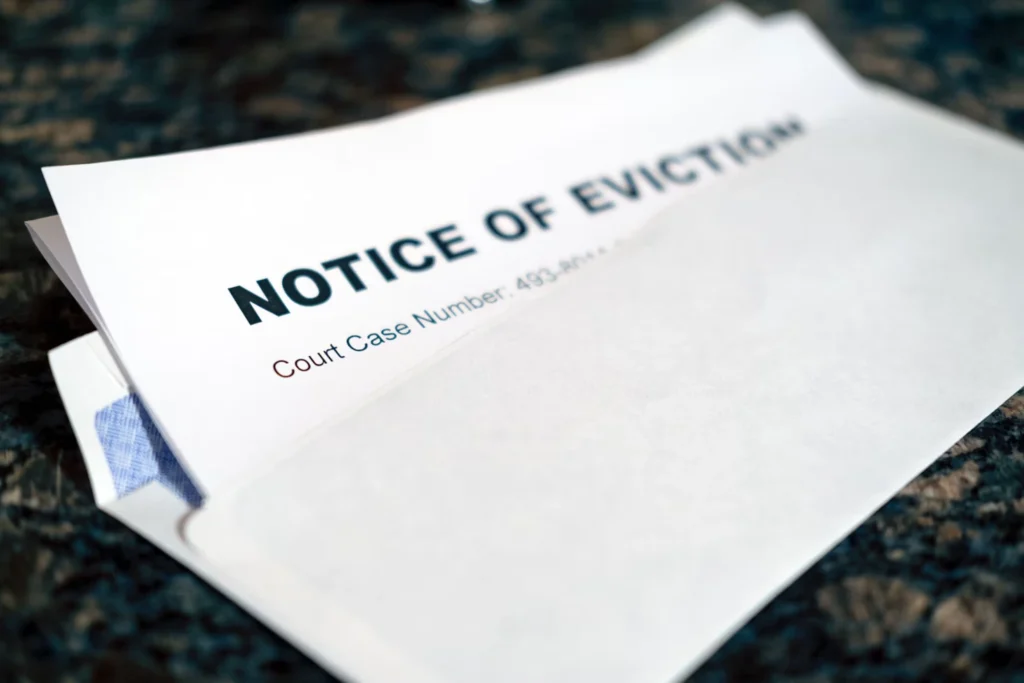Overview Eviction Processes
This document provides an updated overview of the New Jersey eviction processes as of 2024. Understanding the laws and procedures surrounding eviction processes is crucial for both landlords and tenants in New Jersey to navigate this often complex situation.
Landlords must follow specific steps, including giving proper notice before filing for eviction. Grounds for eviction can range from non-payment of rent, violation of lease terms, or illegal activities. Tenants, on the other hand, have the right to contest an eviction in court, and some cases may be subject to eviction protection laws, such as those for rent-controlled properties or during special circumstances like health emergencies.
Being aware of legal obligations, documentation requirements, and deadlines is key to avoiding disputes and delays. Both landlords and tenants should be prepared to navigate the eviction process with a clear understanding of their rights and responsibilities to avoid costly legal battles or wrongful evictions. Staying informed about updates to state laws and regulations is vital for successful property management and tenancy in New Jersey.
Eviction Process Summary
The New Jersey eviction process generally follows these steps:
- Notice to Cease: This is an initial warning for lease violations, advising the tenant to stop violating the lease terms. Learn more about New Jersey’s eviction notice requirements.
- Notice to Quit: A formal eviction notice indicating that the tenant must vacate. You can find more details about how to evict a tenant under New Jersey law.
- Filing a Complaint: If the tenant does not comply with the notice, the landlord can file an eviction complaint. Read more about landlord eviction rights.
- Court Hearing: Both parties present their case before a judge. Understand the eviction court process for more insights.
- Judgment: The court will issue a decision on whether the tenant must vacate.
Table: New Jersey Eviction Process Timeline
| Eviction Step | Estimated Timeframe |
|---|---|
| Notice to Cease | 3-30 days |
| Notice to Quit | 3-60 days |
| Filing a Complaint | 1-2 weeks |
| Court Hearing | 30-45 days |
| Eviction Enforcement | 3-14 days |
Understanding Eviction Costs in New Jersey
| Action | Approximate Cost |
|---|---|
| Filing fee | $50 + $5 per tenant |
| Service of summons | $7 to $22 + mileage |
| Legal fees | Starts at $500 |
Key Takeaways
-
Understand Tenant Rights: Tenants have specific rights during the eviction process, including the right to contest the eviction.
-
Keep Records: Both landlords and tenants should maintain thorough records of all communications related to eviction notices and processes to avoid disputes.
-
Legal Aid: Tenants may seek assistance from legal professionals or local housing authorities for guidance.
Common FAQs
-
What happens if I ignore an eviction notice?
Ignoring an eviction notice can lead to the filing of a formal eviction court process, and ultimately, enforcement by law enforcement officials. -
How long does the eviction process take in New Jersey?
The timeline can vary, but typically takes several weeks to a few months depending on court schedules and case complexity. -
Can tenants dispute an eviction?
Yes, tenants have the right to contest an eviction in court by presenting valid defenses against the landlord eviction rights. -
Is it illegal for landlords to evict tenants without notice?
In most cases, an illegal eviction occurs when landlords evict tenants without following proper eviction laws by state. -
What is a Notice to Quit?
A Notice to Quit is a formal document that demands a tenant vacate the property. Learn more about the Notice to Quit in New Jersey and its legal requirements.
Citations and Additional Resources
- New Jersey Statute NJSA § 2A:18-53, § 2A:18-61.1
- NJ Department of Community Affairs: Landlord-Tenant Information
- Curbelolaw: New Jersey Eviction Process
- Steadily: Eviction Costs in New Jersey
This updated guide on eviction processes in New Jersey reflects current procedures and laws for 2024, providing valuable information for landlords and tenants alike. It highlights key steps like filing a notice to quit, understanding eviction notice requirements, and navigating the tenant eviction process.






